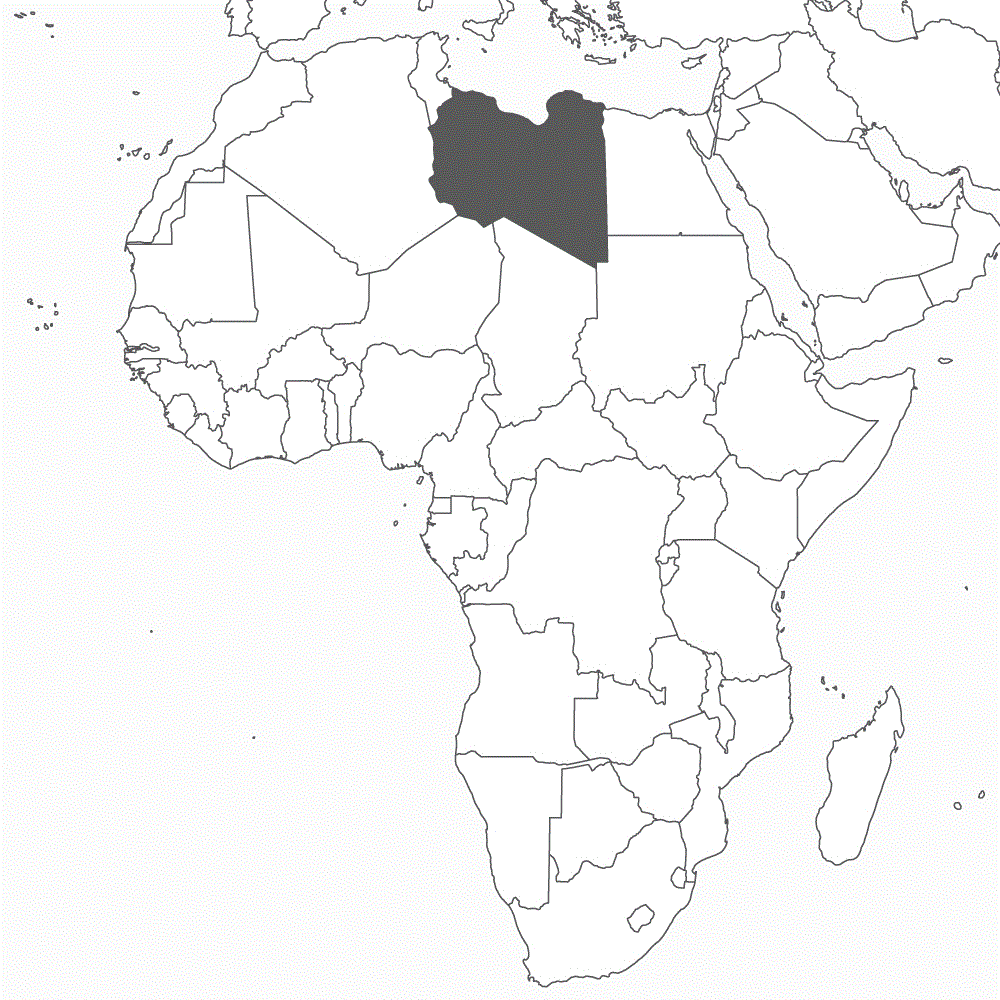Detention Camp Specialists
BERLIN/BRUSSELS/TRIPOLIS/MINSK (Independent report) - The Berlin Interior Ministry wants to set up detention camps for refugees in central Africa, as well as in eastern Europe. It also wants to extend the current admission strategy on an international basis. This is confirmed by strategy papers of the Berlin Federal Ministry of the Interior and the European Commission. They are thinking of establishing such detention camps in Tanzania, as well as in the Ukraine, Moldava and Belarus. Poverty-stricken refugees are supposed to be gathered in the camps, known as holding centres which supposedly provide protection measures, before possible entry into European core states. There they are checked for their use in the economy and subsequently transferred to either the low-wage European sector, or deported back to their own country of origin. Respective pilot projects ("regional protection programs") are supposed to be evaluated in 2007. According to a statement by the German Interior Minister currently in Office, the intentions borne by Brussels also correspond to "my suggestions greatly in context and direction." German-foreign-policy.com publishes extracts from the strategy papers.
Back To The Region Of Origin
The strategy paper by the German interior ministry, which is now available, confirms the detention camps researched to date for this article.[1] As stated in the document, refugees from Africa, including those picked up in the Mediterranean, should be brought to North African camps (detention buildings) and be screened. The screening used to analyse the protection requirement of the refugees has no legal consequences for the EU states, as they are "not obligated to admit any refugees." Rather, people in need of protection are to be brought to "secure (...) countries (...) of their region of origin"; in the same way those people supposedly not in need of protection should be deported back to the "region of origin," or directly back to the "country of origin."[2] Those countries where the detention camps are to be built do not have to have signed the Geneva Refugee Convention; Berlin also declares that they are under no formal obligation to meet fundamental human rights standards. As a consequence, the proposal undercuts even the slightest international requirements declared by Berlin to unpopular third countries as indispensable and appeals to the defence of the "human rights".
Immigration With The Aim To Work
The Berlin strategy paper binds the North African camp system with an obligation by the EU neighbouring states of "effective controls" concerning the traffic of people crossing the boarder. With this, it aims at finally excluding people fleeing to the EU member states. At the same time, the camps are declared as workforce reservoirs. "Member states can offer effected people, if they wish, the possibility of immigrating legally for purposes of work," says the document. A year ago, german-foreign-policy.com had already published such intentions.[3] The detention camp-project enables a comprehensive control on the migration movement, caused by western pillage and warfare in the poverty stricken countries of Africa and Asia; it also guaranties the optimisation of delivering a workforce in accordance with the European economic need.
Regional protection programs
The Berlin camp-plans were confirmed and specified in a strategy paper by the European Commission on 1 September 2005. As stated in the paper, there is a need "at the southern borders, as well as the eastern borders of the EU (...) for an increase in detention buildings," in order for "the affected countries to better control the migration movement."[4] To this end, Brussels will apply so called "regional protection programs" and "control the migration flow in each country" by means of involvement of existing EU finance programs ("AENEAS", "TACIS"). The Commission states that northern and eastern Africa, as well as the Afghanistan region should be involved in the "regional protection program." However, Brussels gives the eastern European GUS states (Ukraine, Moldova and Belarus), and also central Africa ("area of great lakes") the highest priority.
Positive contribution
Conclusively, the Commission suggests carrying out the "regional protection program" for pilot projects in Tanzania and controlling it with funds from the EU aid program AENEAS. Within the framework of the AENEAS, 250 million euros will be spent between 2004 and 2008 to prevent poverty stricken people fleeing to Europe. Now they say that the means would have to be partly used to develop the detention camp system ("capacity development"). Tanzania, one of the poorest countries in the world, is expected to be one of the possible project partners. This is because the country hosts the highest number of refugees in the whole of Africa. Without addressing the issue of double poverty in African states admitting refugees, populations in the admitting countries are instructed by the EU to contemplate "the positive contribution of the refugees landing there."
Restricted
Apart from this, Brussels wants to carry out pilot projects in three East European GUS states (Ukraine, Moldova, and Belarus). These intentions take into consideration the common knowledge of plans to overthrow the Minsker government in a coup d'état. The paper says that "the measures in Belarus" will concentrate on increasing the amount of protection with help from the NGO (non governmental organisation); contact to governmental authorities will be restricted to "the utmost essential."
[1] see also Undesirable
[2] Effektiver Schutz für Flüchtlinge, wirkungsvolle Bekämpfung illegaler Migration. Überlegungen des Bundesministers des Innern zur Errichtung einer EU-Aufnahmeeinrichtung in Nordafrika
[3] see also The Libyan Project
[4] Mitteilung der Kommission an den Rat und das Europäische Parlament über regionale Schutzprogramme. KOM(2005) 388 endgültig; Brüssel 01.09.2005
